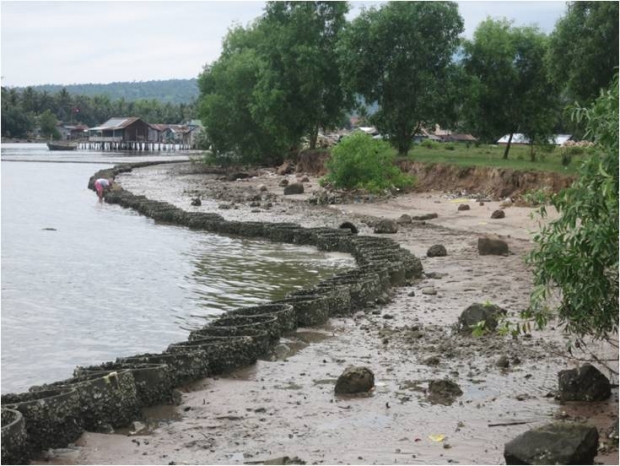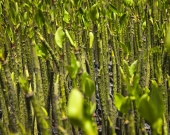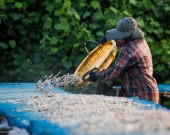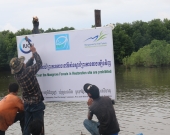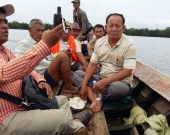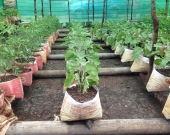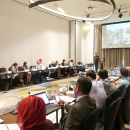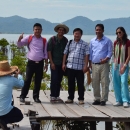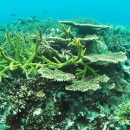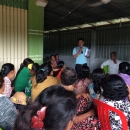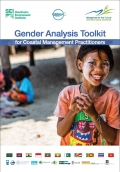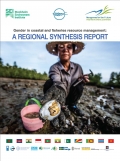Cambodia has its 440 kilometer-long coastline scattered with mangrove forests, coral reefs, seagrass beds and other coastal ecosystems which play a significant role in ecosystemproductivity and to people. These ecosystems are fundamental to the livelihoods of millions of Cambodians and to the nation as a whole. Not only do they perform an essential role in supplying people with fish, a staple food rich in protein for Cambodians, but are also vital to coastal protection, tourism and biodiversity.The conservation and management of mangroves, coral reefs and seagrass beds are therefore vital to the sustainable management of coastal and marine fisheries and to ensure Cambodia’s people continue to gain economic, cultural and nutritional benefit from the resources.
Cambodia's coastal and marine areas are biodiversity rich areas and have significant values of conservation value including marine mammals such as the dugong and marine dolphins, whale, marine turtles, crustaceans and mollusks etc. Natural ecosystems of mangroves, coral reefs and seagrass beds all provide a wide range of services to Cambodia—fishing for critical food resources, coastal protection, tourism and biodiversity. They also provide important natural habitats essential to sustaining the marine fisheries of Cambodia. Destruction of these natural habitats results in a loss of breeding, spawning, nursery and feeding grounds for many marine species, leading to a reduction in fishstocks and other coastal and marine fauna and flora and to serious impacts on human well-being.
Coastal wetlands in Cambodia have not received the same attention as freshwater wetlands. However, in the recent years, coastal wetlands of Cambodia have been gaining attention because it was recognized that many rural poor people are reliant on the collection of coastal resources for their livelihoods and household income generation (WI, 2012) and the significant roles healthy coastal ecosystems play in reducing vulnerability to hazards by supporting livelihoods and in acting as natural physical buffers "natural infrastructure" to reduce the impacts of hazard events (Sudmeier & Ash, 2009). Cambodia's coasts are facing issues due to
- Conversion of coastal land for agriculture and aquaculture
- Over exploitation of fisheries
- Urban development
- Sand mining and dredging
- Destruction and degradation of coastal habitats
- Climate change
MFF in Cambodia
Cambodia is currently an MFF Outreach country, and in this respect receives general support for preparing to become a full member country of MFF. On 26 June 2013, the National Strategy and Action Plan for Cambodia was signed and approved by the Senior Minister, Minister of Environment of the Royal Government of Cambodia.
The Executive Board for MFF in Cambodia was established on 15 June 2012 and approved by the Ministry of Environment of Cambodia on 12 October 2012. The Executive Board is responsible for coordinating MFF in Cambodia and for developing and implementing coastal management initiatives at the national and sub-national levels. It provides provides a forum to foster improved dialogue, planning and decision-making between the different government agencies and non-governmental organizations involved in coastal management and development within the context of MFF and in relation to broader issues and concerns of coastal ecosystem management in Cambodia.
 Cambodia
Cambodia 